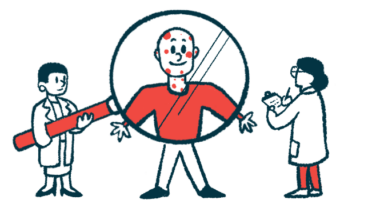Recreational Therapy for LEMS Patients

Living with a chronic disorder such as Lambert-Eaton myasthenic syndrome (LEMS) can lead to anxiety, stress, and feelings of isolation. Recreational therapy can help to promote a greater sense of psychological and physical well-being.
About LEMS
LEMS is a rare autoimmune disorder that affects the nerve cells controlling muscle movement. Its primary symptoms include muscle weakness, fatigue, eye problems, and pain.
About 50–60% of LEMS cases are associated with small-cell lung cancer.
About recreational therapy
Recreational therapy, sometimes called therapeutic recreation, uses enjoyable activities as interventions to address the needs of those with chronic illnesses or disabling conditions. The intent is to improve or maintain physical, cognitive, social, and emotional health so patients can more fully enjoy life.
What does it involve?
A certified therapeutic recreation specialist (CTRS) provides and directly supervises the service. He or she helps to assess your needs, and develops a program tailored to those needs.
The goal is to help maintain your physical, mental, and emotional well-being by easing stress, anxiety, and depression. Recreational therapy can also help you to strengthen or recover basic motor and other abilities, build confidence, and keep you engaged.
Techniques in recreational therapy may include arts and crafts, animals, sports, games, dance and movement, drama, music, and community outings.
A doctor’s referral is usually necessary to begin recreational therapy. If you think this therapy would help you, talk to your doctor or healthcare team about getting a referral to a program that’s convenient.
How recreational therapy can help LEMS patients
LEMS can cause difficulties at home, work, and in everyday life. Merely keeping up with medical appointments can be stressful, weighing on a person’s physical and mental health. That’s why it’s important to keep social engaged.
Sometimes, people with rare diseases tend to avoid social activities because they feel others will not understand their disorder, usually because they’ve never heard of it. There’s also a need to constantly explain symptoms that can include difficulty walking and climbing stairs. LEMS can also cause problems with speech, chewing, and swallowing, all of which can affect social interactions.
A poorer exercise capacity can limit your participation in some recreational activities, such as dance and movement, but your therapist can come up with a plan that’s right for you. Such engagement can lead to a passion or interest that you can share with others, particularly between flares when, for some patients, symptoms can be nearly absent.
LEMS patients who have small-cell lung cancer may also benefit from recreational therapy. For these people, recreational therapy can help to ease the stress of dealing with two diseases simultaneously.
Last updated: Dec. 21, 2020
***
Lambert-Eaton News is strictly a news and information website about the disease. It does not provide medical advice, diagnosis, or treatment. This content is not intended to be a substitute for professional medical advice, diagnosis, or treatment. Always seek the advice of your physician or other qualified health provider with any questions you may have regarding a medical condition. Never disregard professional medical advice or delay in seeking it because of something you have read on this website.






